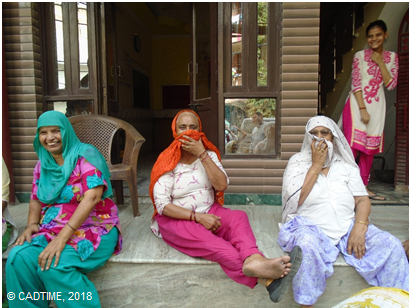WT2: Current Understanding
Work Task Description:
A clear understanding of the policies and interventions previously implemented, currently in place and proposed both locally and nationally, is essential to deliver effective mitigation measures for Delhi. Therefore a comprehensive review of the interventions and policy instruments that have been applied in Delhi for the last 10-20 years, and the extent of their implementation will be carried out as part of WT2.
The policy review will be followed up with a policy stakeholder workshop held in Delhi to identify the effectiveness of different interventions. We will take care to separate perceptions of the efficacy of the intervention in principle and its performance in practice in considering any implementation challenges. As well as obtaining evidence from policymakers on effectiveness of extant measures, the public will also be consulted to identify acceptability and practicality of proposed or potential measures.
WT2 will also perform a critical review examining the successes and failures of UK and European policies (e.g. successful domestic and industrial interventions, but limited success regarding road traffic emissions). Whilst it is recognised both that source/pollutant/exposure issues in India differ from those in the UK and Europe, both positive and negative, and that European strategies have not yet succeeded in meeting air quality limit values, there are lessons that can be learnt from European experiences. This is essential to avoid ineffective policies and achieve cost-effective solutions for Delhi in the shortest possible time.
Current Activities:
The CADTIME team has been working on developing the baseline knowledge on Delhi’s past and current air pollution problem and existing solutions. The baseline builds on the results of a policy review of air quality management in India and in Delhi. In particular, we reviewed key legislations, court cases and measures (e.g. the Graded Response Action Plan), as well as analysing how air quality management sits within the history of environmental protection and governance in India from 1947 onwards.
In addition, we have been gathering primary data through semi-structured interviews with experts from different sectors (e.g. governmental agencies, NGOs, private sector, etc…) and through focus groups with Delhi citizens to find out about their lived experiences with air pollution, their coping mechanisms, their views on past and current interventions and expectations about the future. So far, we have conducted 8 face-to-face semi structured interviews and 8 focus groups, which we are currently analysing. The focus groups covered different wards in South-East Delhi. We chose the wards based on the characteristics of the area (e.g. industrial/commercial areas, villages, illegal settlements, etc.) so that we could get a broader spectrum of insights into the challenges and conditions of different communities. We plan to continue the data gathering during our next field trip (Autumn/Winter 2018)




